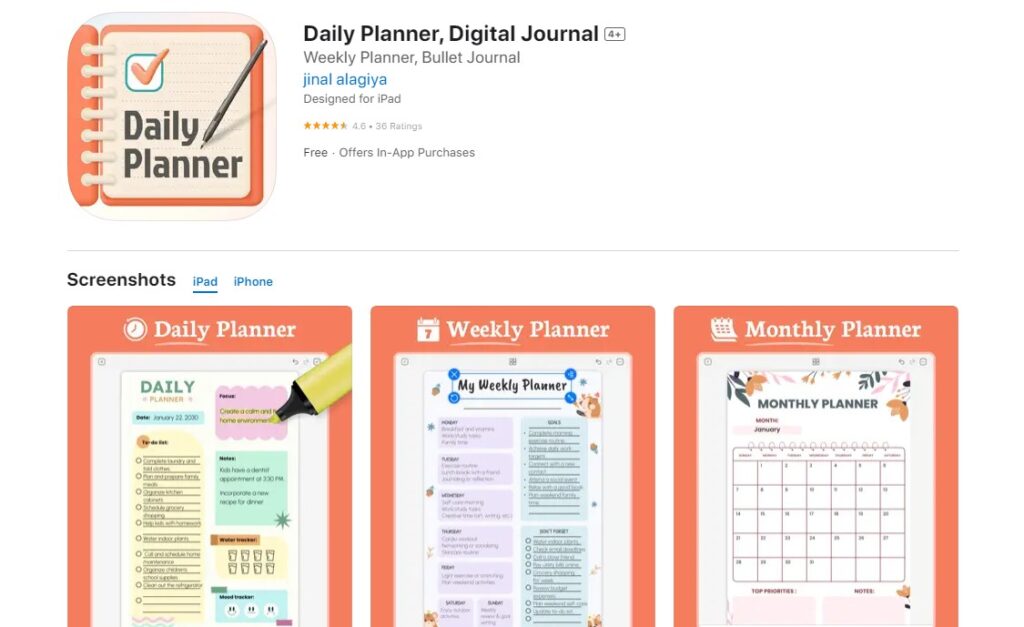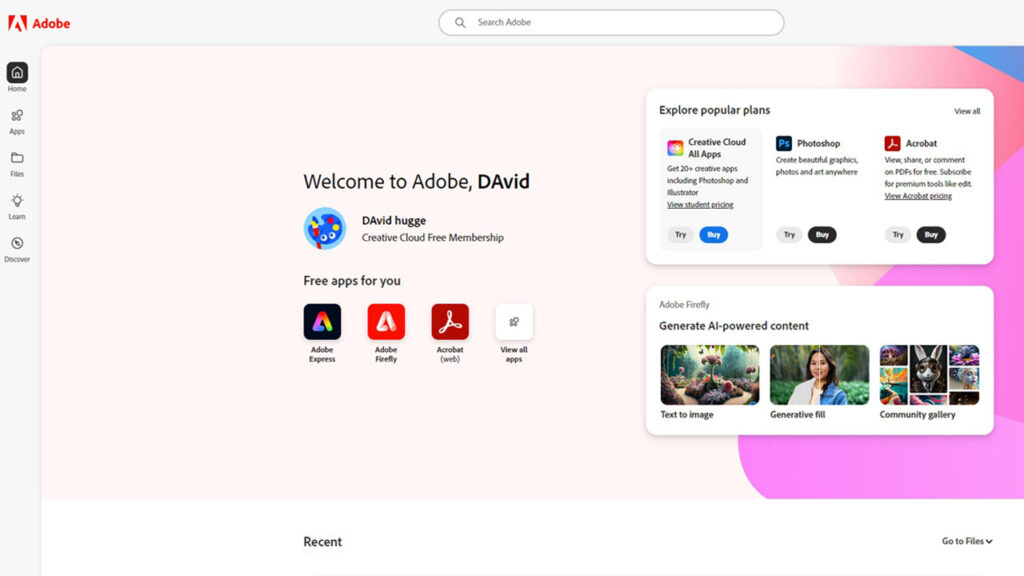If you manage a team or take your business to the next level, performance planner is essential. By tracking and measuring progress, you can pinpoint areas that need improvement and create a plan to address them. You know how important it is to help your team members set and reach their goals. But what’s the best option to achieve that?
One popular method is called the performance planner. The performance planner can help you set and track goals, give feedback, and provide support to your team members.
Keep reading to learn more!
Whether you’re looking to improve your sales, marketing, or operations functions, a performance planner can help you do it faster and more easily than ever before. This makes it easier to make informed decisions about what’s working and what isn’t. And when you make those decisions — even if you don’t have all the data — you’ll be better informed about what should be changed in the future so that your business stays on track.
Here’s how it works:
- You and your team member will sit down and set some goals. These can be short-term or long-term goals, but they should be specific and measurable.
- You’ll create a plan for how those goals will be reached. This plan will include specific steps, deadlines, and milestones.
- You’ll track the progress of the goals and give feedback along the way. This feedback will help your team member stay on track and reach their goals.
The performance planner is a great way to help your team members set and reach their goals.
What is Performance Planning?
Performance planning is the process of setting goals and objectives for employees and then assessing their progress. This process can help managers identify areas where employees need improvement and identify strategies to help them improve. It also help employees stay motivated and on track to achieve their goals.
The most effective way to increase profits is to take the time required to evaluate, optimize, and improve your business. The performance planning allows you to create a detailed report of everything that is happening in your business, and then make adjustments.
If you have a business, big or small, you understand that being organized and efficient are both key to success. You must be able to monitor your growth and pinpoint areas that need improvement. That’s where performance planner comes in to help.
If you’re not using performance planner, you’re missing out on a valuable resource that can help increase your efficiency and improve your bottom line.
How Can Performance Planner Serve Your Business?
There are many advantages to using performance planning in your business. The most apparent benefit is that it can help you enhance the performance of your employees. By establishing specific goals and objectives, and giving feedback on a regular basis, you can assist your employees in comprehending what is anticipated of them and how they can improve.
Not only can performance planning help improve employee productivity, but it can also bolster communication within your business. You can include employees in the planning process to make sure that everyone is aware of and working towards the same objectives. Doing so can enhance team morale and, as a result, increase productivity levels overall.
Performance planning can also help you to identify training and development needs within your business. By assessing employee performance regularly, you can pinpoint areas where employees require additional training or support. We can then use this data to formulate targeted training programs that will improve employee skills and knowledge, and lead to enhanced business performance overall.
How Proper Planning Prevents Poor Performance?
It’s no secret that businesses need to continually strive to improve their performance to compete and succeed in today’s marketplace. A performance planner is one of the most important tools businesses can use to achieve this goal.
A performance planner allows businesses to monitor their growth and pinpoint areas that need improvement. By taking the time to plan for their future, businesses can sidestep many of the problems that lead to underwhelming performance.
There are many benefits that businesses can enjoy by using a performance planner. Perhaps the most important benefit is that it can help businesses avoid making costly mistakes. By carefully planning their activities, businesses can avoid wasting time and resources on activities that do not lead to improved performance.
What Can The Performance Planner Assist You With?
The performance planner can help you with tasks such as:
- Assessing How Well Your Business Is Currently Doing
- Pinpointing Which Areas Need Improvement
Before you start your onilne business, it’s important to establish what your goals and objectives are. This will help you determine what content to create and how to promote your blog once it’s published. By taking the time to plan ahead, you’ll be more likely to achieve success with your guided venture!
– can help improve productivity and identify any potential problem.
What Are The Benefits Of Performance Planning?
- They can be used to improve business performance by keeping track of activities performed by employees. This is especially useful when companies have complex tasks which require meetings and meetings happen at regular intervals (e.g., managing the company’s finances).
- They can be useful for small and medium scale businesses when it comes to tracking results of productivity improvement programs in a continuous fashion.
- If an employee is performing poorly or failures occur in the business, then performance planner can help to identify reasons for these failures (e.g., if you are having trouble getting your employees to take attendance regularly, then you should use performance planner to find out why and fix the problem).
- Performance planners can also be used for monitoring the health of an organization’s efficiency (see above) by looking out for signs which indicate that a company is in need of improvement or that it is failing in its mission or goals (e.g., if there are no colleagues who attend meetings regularly or their attendance is not on time, then it may be time for your company management to pay attention).
- Performance planners can be useful in helping companies manage their work processes more effectively so as to save costs, reduce errors and increase efficiency (e.g., if you want your company management team working with a more organized process so as not to lose money due to mistakes).
Tips for Creating a Successful Performance Plan
- Define your goals
- Set actionable steps
- Set a timeline
- Make adjustments
- Set realistic benchmarks
- Hold yourself accountable
- Evaluate your progress
Define Your Goals
When it comes to goal setting, it is important to have a clear understanding of what you want to achieve. This may seem like a simple task, but it can be difficult to articulate your goals without a clear understanding of what you are trying to achieve.
When you are clear about your goals, you can develop a plan to achieve them. Setting up business goal is a critical part of any successful endeavor. Without goals, it is difficult to track business progress.
If you’re not sure where to start, try brainstorming or talking to a professional about your goals. Defining your goals is an important first step toward achieving them.
Set Actionable Steps
As a small business owner, it’s important to have clear and actionable steps for your business. One of the best ways to achieve your business goals is to set actionable steps. By breaking down your goals into small, manageable steps, you can stay on track and make progress towards your goals.
Assign tasks to employees or contractors and trust that they’ll be able to get the job done. Trying to do everything yourself will only lead to mess things up.
Set A Timeline

Setting and achieving business goals can seem like a daunting task, but it doesn’t have to be. By creating a timeline for your goals, you can break them down into manageable pieces and increase your chances of success.
Utilizing tools like a daily planner app can further streamline your process, providing digital organization and accessibility to keep you on track.
While there is no one-size-fits-all approach to setting a timeline for your goals, there are some general guidelines you can follow.
First, think about how long it will realistically take to achieve each goal. Then, set milestone dates for each goal so you can track your progress. Finally, make sure to review and adjust your timeline as needed.
Make Adjustments
As a business entrepreneur or owner, you are constantly making adjustments. Some are small and some are large, but they all require you to be constantly thinking about your business and how you can improve it.
The most successful businesses are always making adjustments, whether it is to their product, their marketing, their operations, or their management.
Set Realistic Benchmarks
A lot of people think that in order to be successful, they need to set super high standards for themselves. But that couldn’t be further from the truth! In order to be successful, you need to set realistic benchmarks that you can actually achieve.
This may seem like common sense, but you would be surprised how many people set unrealistic benchmarks for themselves.
If you set a benchmark that is too high, you are setting yourself up for disappointment. You are much more likely to achieve a goal if it is something that is actually attainable. When you set realistic benchmarks, you are more likely to stay motivated and see your progress over time.
This will help you stay on track and reach your ultimate goal.
Hold Yourself Accountable
We all have goals that we want to achieve, but sometimes it’s hard to stay on track. One way to help yourself stay accountable is to set deadlines and create a plan to reach your goals. It can be helpful to tell someone else about your goals so they can help you stay on track.
But ultimately, it’s up to you to hold yourself accountable. If you slip up, don’t be too hard on yourself get back on track and keep moving forward.
Evaluate Your Progress
It’s important to regularly evaluate your progress to ensure you are on track to meeting your goals. You can do this in a number of ways, including setting regular check-ins with yourself or your supervisor, keeping a journal, or making a list of accomplishments at the end of each day.
No matter what method you choose, make sure you are honest with yourself about your progress. This is the only way to ensure you are making the necessary changes to reach your goals. If you find yourself falling behind, don’t be discouraged, simply redouble your efforts and get back on track.
How Can Businesses Get Started With Performance Planning?
A performance planner is a way to measure the performance of your website and mobile app, as well as to track content delivery, pageviews, and overall website traffic.
Performance planners are a relatively new technology. Search engines and analytics tools like Google Analytics and Mixpanel use them, as well as major social media platforms such as Facebook and Twitter.
Most performance planners have built-in extensions that provide additional data to assist in making strategic decisions about your business’s goals in terms of content delivery, pageviews, conversions, engagement rate (or ‘engagement’), the mix of these goals over time…
A performance planner can be used to answer these questions:
- How is my website performing?
- Which pages are driving the most traffic?
- What pages are driving least traffic?
- Which mobile app versions are getting the most use?
- Which versions aren’t getting much use at all?
- How is my overall brand exposure on search engines like Google & Bing changing over time?
- How does my m&a activity (acquisitions) stack up against historical ones?
- How does my revenue mix stack up against historical ones?
Performance planning can be applied for any type of business: it’s not limited only to startups or web businesses or e-commerce businesses. It can be used for any type of business where there’s a need for performance metrics.
It also has applications beyond just optimizing your website or app: it can also help you analyze your competitors’ websites, discover key insights around what they’re doing well (or poorly), learn from them, improve your own site and apps based on their success stories.




